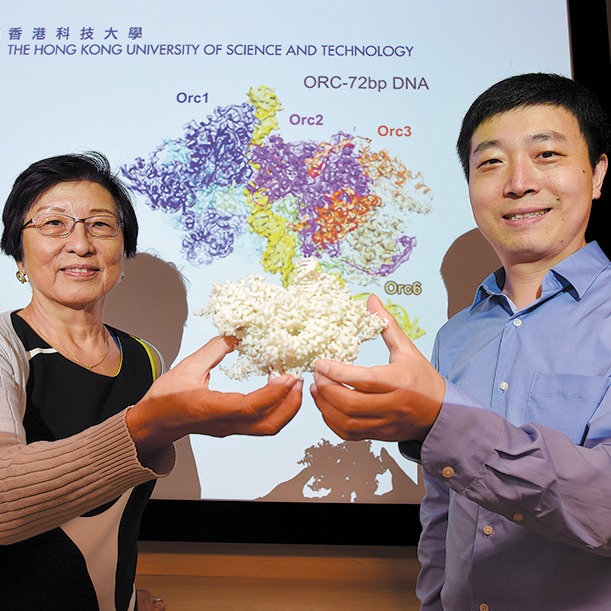
Scientist uses high-def tech to delve deeper into DNA – China Daily
In 1953, James Watson and Francis Crick discovered the double helix structure of DNA, opening up endless possibilities for exploring the genome and genetics. For over 70 years, biologists around the world have ceaselessly researched DNA, attempting to unravel the mysteries of life at the microscopic level.
Professor Zhai Yuanliang from the School of Biological Sciences at the University of Hong Kong is one of them. At age 45, he has devoted nearly half of his life to studying the molecular mechanisms of DNA replication.
On Jan 5 last year, Zhai and his collaborators revealed a mechanism for the regulation of DNA replication by MCM(minichromosome maintenance) proteins in the top international scientific journal Cell. This research was selected as one of the top 10 scientific advancements in China last year, and Zhai’s team was the only Hong Kong-based research team included on the list.
However, the journey to achieve this research breakthrough was filled with decades of twists and turns.
“People generally think that DNA replication is an old field, but this is actually a misconception,” Zhai said.
Due to the low resolution of previous instruments, it used to be impossible to clearly observe the microscopic structures. Even though the double helix structure of DNA was discovered as early as 1953, how it unwinds and opens has always been a mystery.
In 2004, Zhai began researching the mechanism of DNA replication during his doctoral studies at the Hong Kong University of Science and Technology, where he spent every day in the lab observing the process of DNA replication, continuously proposing new structural models and repeatedly verifying them. This routine has persisted for 20 years.
But despite his dedication, progress was slow for Zhai.
“In scientific research, one must have persistence,” said Zhai.
The pace was so slow in fact, that his first paper was only accepted one month before graduation after six years of PhD study.
“The pressure at that time was really immense. I thought if I couldn’t graduate, I might quit scientific research,” he said.
Zhai explained that in around 2010 in the field of life sciences, neuroscience and brain science were considered the frontiers of biological research. Due to technological limitations, many believed that it was difficult to make essential breakthroughs in the field of DNA replication. Consequently, many people switched to other fields.
However, he was obsessed with the intricacies of the microscopic world and couldn’t free himself from it. “When you look inside a cell, you will find it amazing because it is truly beautiful,” Zhai said.
With this passion, in 2011, Zhai continued his postdoctoral studies in the field of DNA replication under the supervision of Bik-Kwoon Tye, who was a professor at Cornell University in the United States and a visiting professor at HKUST.
For more visit China Daily
For subscriptions on news from China Daily, or inquiries, please contact China Daily Africa Ltd on +254 733 566 499 or write to enquiries@chinadailyafrica.com
